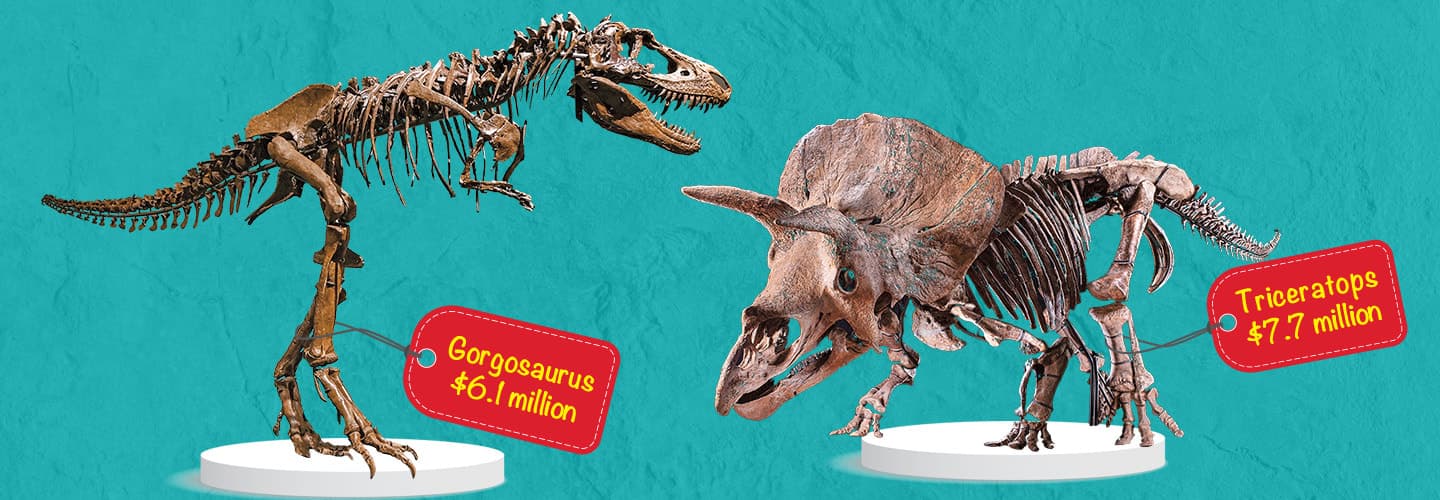Shutterstock.com
How did the 80-foot-long dinosaur get to the mall? That might sound like the start of a joke, but it really happened. Since 2014, a skeleton of a dinosaur called a Diplodocus has been on display in a shopping mall in Dubai. That’s the biggest city in the United Arab Emirates, a country in Asia. The fossil had been sold at an auction before making its way to the mall.
Dinosaur fossils are often sold at auctions, where the person who bids the most money wins. Last October, a collector paid $7.7 million for the biggest Triceratops skeleton ever found. In May of this year, the remains of a dinosaur called a Deinonychus sold for $12.4 million. Some dinosaur eggs have sold for hundreds of thousands of dollars.
For some collectors, the chance to own a rare dinosaur fossil is worth the huge price tag. Many buyers display their prehistoric purchases in their offices or homes.
But some paleontologists say fossils should never be sold to collectors. They think fossils belong in museums, where researchers can study them.
How did the 80-foot-long dinosaur get to the mall? That might sound like the start of a joke. But it really happened. Since 2014, a skeleton of a dinosaur called a Diplodocus has been on display in a shopping mall in Dubai. That’s the biggest city in the United Arab Emirates, a country in Asia. The fossil had been sold at an auction before making its way to the mall.
Dinosaur fossils are often sold at auctions. At auctions, the person who bids the most money wins. Last October, a collector paid $7.7 million for a Triceratops skeleton. It was the biggest skeleton of that dinosaur ever found. In May of this year, the remains of a dinosaur called a Deinonychus sold for $12.4 million. Some dinosaur eggs have sold for hundreds of thousands of dollars.
For some collectors, the chance to own a dinosaur fossil is worth the huge price. Many buyers display their prehistoric purchases. They put them in their offices or homes.
But some paleontologists say fossils should never be sold to collectors. They think fossils belong in museums. There, researchers can study them.

